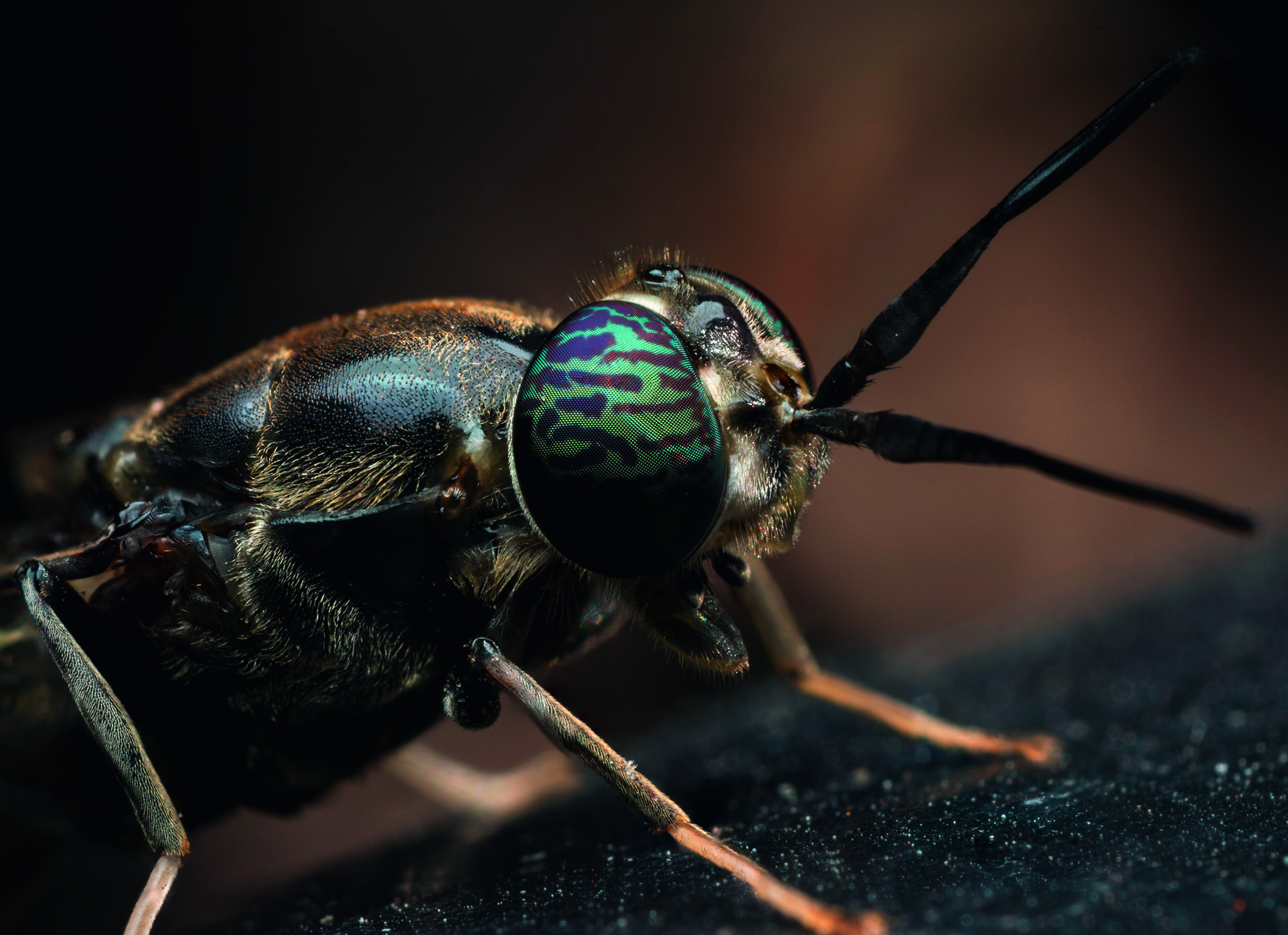
Solutions for investors and full-liners
Focus on the future!
Insect farming could mend the
world’s broken food chain.
Insects offer novel nutritional value and health benefits to humans and animals and are already used in different feed, pet food and food applications. Over 2,000 insect species have a history of being used for feed and food. Still, only about a dozen different insect species are currently being produced on a large scale, because insects are just as hard to domesticate as other animals. One of the most promising insect species for extensive production is the black soldier fly (Hermetia illucens), which is the species BIS focuses on.
International production volumes are still small compared to other production areas in the feed and food sector. However, according to various recent market analysis reports, the insect sector has an expected annual growth of 30 to 40 percent, estimated to reach a global production volume of 1,000,000 tons of protein and fat per year by 2030. As a by-product, a similar amount of insect frass (manure) can be expected – a product that has interesting properties for use as a fertilizer or in biogas plants.
Markets
- pet food
- aquaculture
- poultry
- pigs
- fertilizer industry
Products
- insect protein
- fat
- frass
Advantages
- vertical animal farming that requires less land than soy
- 1 kg of eggs results in 5,000 kg of fully-grown larvae after 12 to 14 days
- feed conversion ratio of growing larvae below 1:1.3
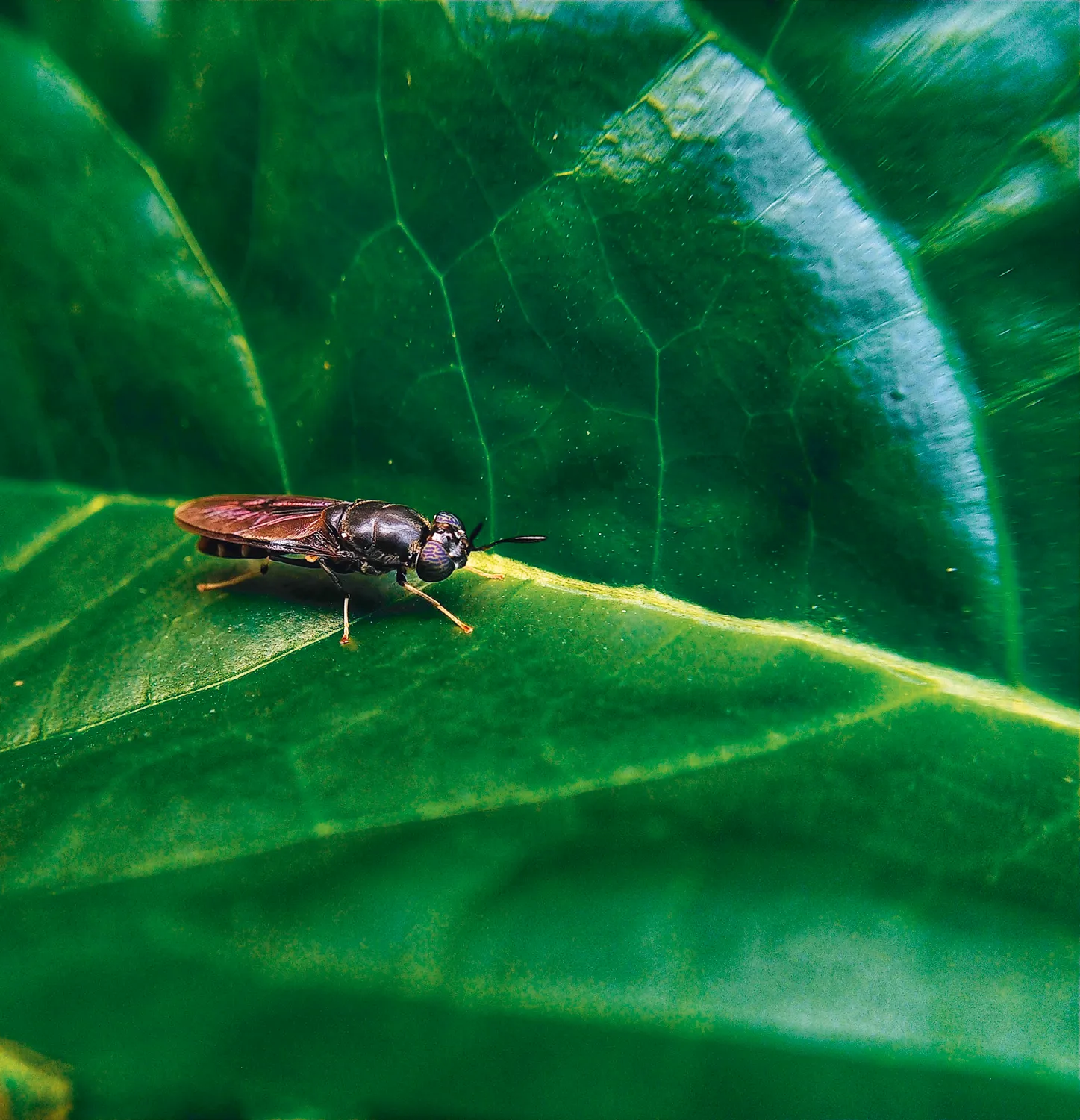
+30–40 %
Estimated annual growth of insect sector.
9 billion
By 2030, almost 9 billion people will need to be fed along with billions of animals raised every year for food production, recreation, or as pets.
We offer you everything from a single source.
Better Insect Solutions is the best partner if you want to enter the insect farming sector as an investor or full-liner. We offer you complete solutions from building design to insect housing and climate systems, air cleaning and heat recovery, feeding systems, logistics, frass handling and larvae processing.
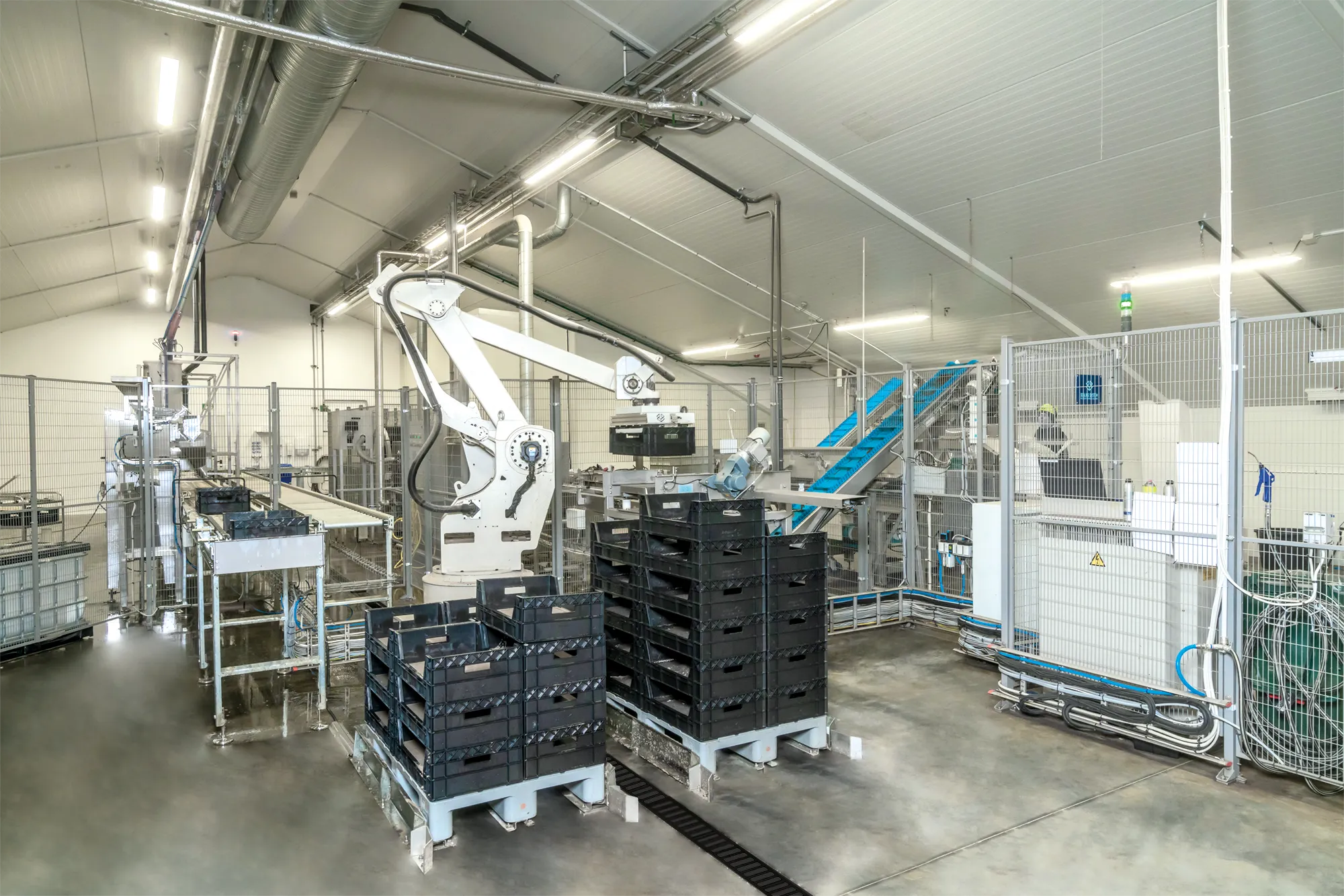
5 project stages for your success.
Our way of working
Better Insect Solutions has a specific way of working on new insect farming projects. After a mutual agreement to work together, the process is divided into five steps, from the customer’s business idea to the final stage of handing over a commercial operation.
1. Pre-feasibility
Pre-feasibility covers setting the overall frame of the project such as defining location, technology needs and eventually support through a business case assessment. The objective is to analyze the basic feasibility of the project and to ensure that expectations align.
2. Feasibility
Feasibility is a stage that requires the involvement of a much larger project team, consisting of members from BIS and the customer. The customer should be able to decide whether the project should be executed or not after this step.
3. Execution
Execution covers the implementation of the project and is led by a dedicated BIS project manager. The site is developed and all systems are being installed by companies affiliated with BIS and key partners.
4. Technical commissioning
Technical commissioning is initiated at the end of the execution stage or when the installation of dedicated sections has been completed.
5. Biological commissioning
Biological commissioning covers the last stage of project commissioning. It is the final step of integration between our technology and the animals. The objective of this phase is to implement best practices in insect farming, thus ensuring that the new production site can start commercial operation.
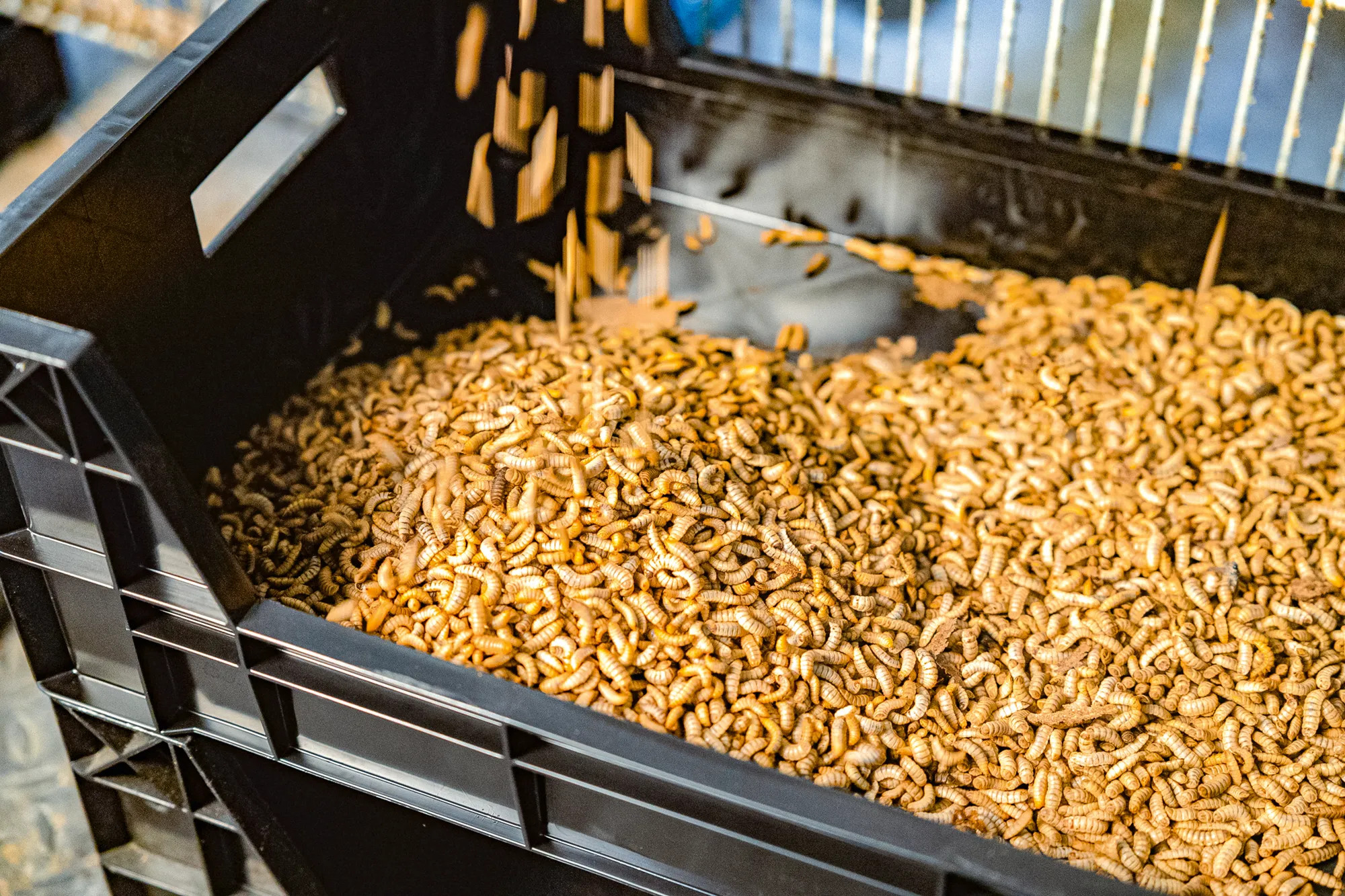
Contact & consultation
Let’s talk about your start in insect farming!
Better Insect Solutions is the concept and solution hub of the Big Dutchman group, comprising the sister companies Big Dutchman, INNO+ and SKOV. For decades, these companies have provided cost-efficient and robust solutions for a wide range of technologies applied in animal farming.
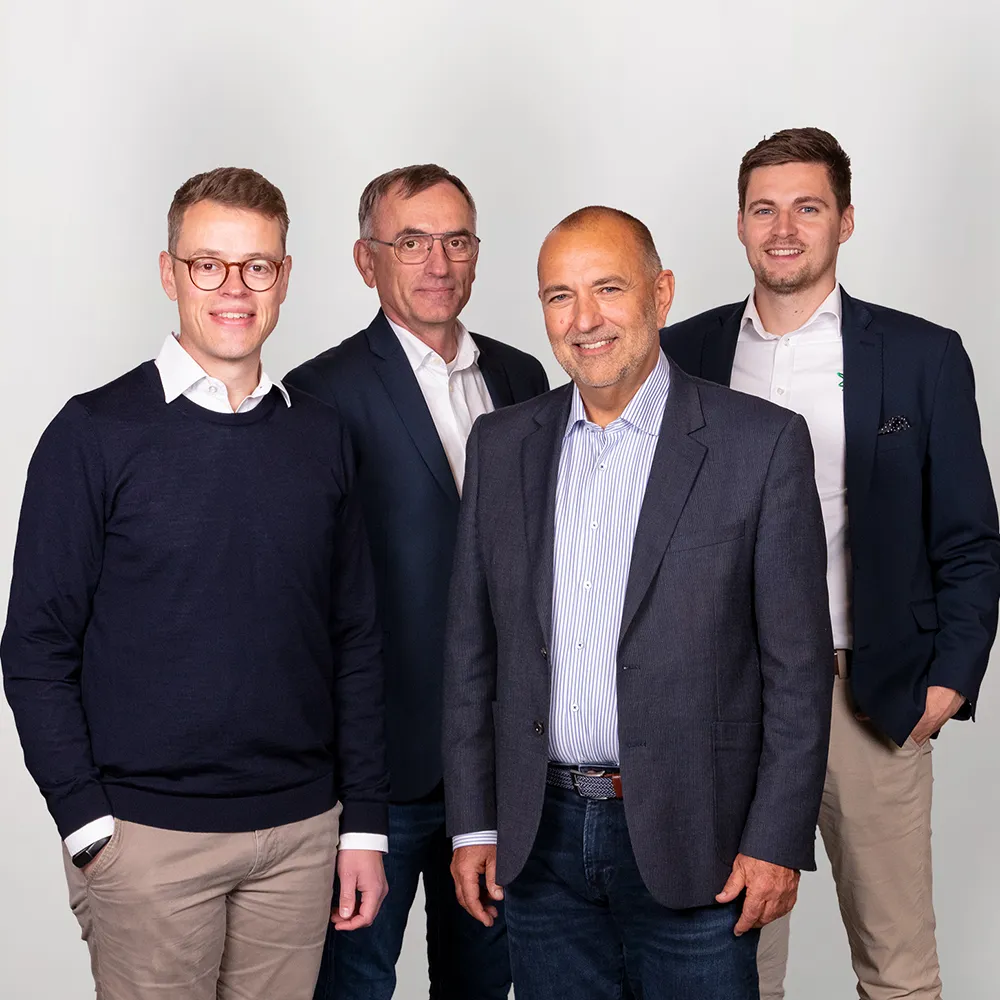
Our team
Lars-Henrik Lau Heckmann (Head of Business Development), Henrik Voigt (Head of Sales), Arne Brændgaard (Senior Project Manager), Julius Hamelmann (Key Account Manager)
